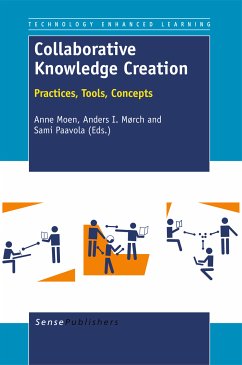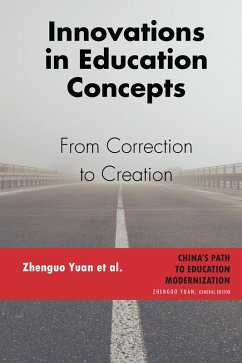
The Creation of a Professional Learning Community for School Leaders (eBook, PDF)
Insights on the Change Process from the Lens of the School Leader

PAYBACK Punkte
14 °P sammeln!
The unwavering culture of continuous improvement efforts to bring about school change has irrevocably changed the role expectations for the school leader. The school leader in the 21st century is increasingly perceived as an instructional leader expected to implement whole-school reform models that can shape teacher practice and influence student outcomes. The significant changes in role expectations for school leaders present considerable challenges to an educational system that was not designed to incorporate these conceptualizations. In light of the increased acceptance of changed leadershi...
The unwavering culture of continuous improvement efforts to bring about school change has irrevocably changed the role expectations for the school leader. The school leader in the 21st century is increasingly perceived as an instructional leader expected to implement whole-school reform models that can shape teacher practice and influence student outcomes. The significant changes in role expectations for school leaders present considerable challenges to an educational system that was not designed to incorporate these conceptualizations. In light of the increased acceptance of changed leadership expectations, the elements that are needed for developing, supporting, and sustaining instructional leaders who can lead systemic change efforts are frequently not present, are fragmented, or are observed at various developmental stages throughout the pK-20 pipeline. This book is centered on the learning and changed behaviors of school leaders, who engaged in a sustained job-embedded professional learning community, facilitated through a university-district partnership. The learning from the findings, suggested that job-embedded learning with their peers, can be instrumental for these principals to build the capacity to lead systemic change efforts. The findings further suggested that creating conditions for new understanding to occur, and sustained opportunities to apply new learning in context to their role, entailed a collaborative effort by a partnership involving two separate institutions with different priorities. The author makes a case for the educational pipeline, to prioritize the support and understanding of complex systemic change efforts and innovations, as they are linked to school improvement.
Dieser Download kann aus rechtlichen Gründen nur mit Rechnungsadresse in A, B, BG, CY, CZ, D, DK, EW, E, FIN, F, GR, HR, H, IRL, I, LT, L, LR, M, NL, PL, P, R, S, SLO, SK ausgeliefert werden.












